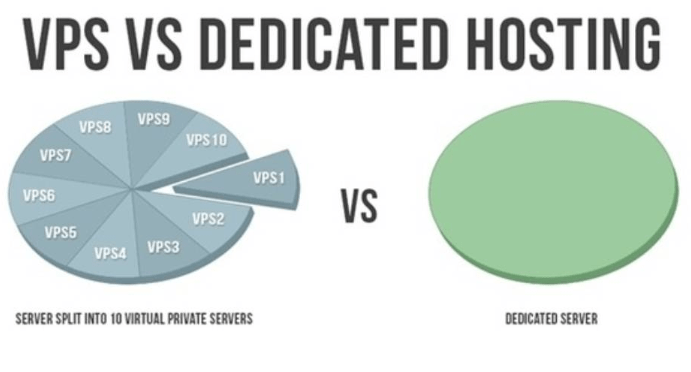When a business needs dedicated hosting, it’s important to understand the differences between a VPS and a dedicated server. While a dedicated server is ideal for larger businesses, smaller websites often need less power and don’t need a bare metal server. Instead, a VPS can provide all the resources needed for a website. A VPS is also more affordable and can provide a variety of features.
A dedicated server allows for nearly infinite configurations while a virtual private server has limited resources. A virtual private server is limited by the hardware and capacity of the physical server. A dedicated server can accommodate large software packages, but you may have to share the hardware and memory with other clients. While a dedicated server has unlimited resources, you may not be able to install full stacks or use high-end software.
Dedicated servers are generally more expensive than shared servers. While a VPS offers better performance, its capacity is limited by its physical hardware and chassis space. Upgrades may involve downtime and migrations. Moreover, they require a higher price tag. Nevertheless, the cost difference between a dedicated server and a VPS is relatively small. And, when you consider the amount of time you want to invest and the technical ability of the hosting team, you might want to opt for a managed virtual server.
Dedicated hosting is far more secure. The only disadvantage is the increased complexity. While dedicated servers are more flexible, they are also more costly. In general, dedicated servers are better suited to small and medium-sized businesses. Similarly, shared hosting is vulnerable to hackers due to shared physical machine resources. A virus bypassing the hypervisor may leave all the websites on the server vulnerable. A dedicated server can be configured to fit the needs of a business.
A VPS is more expensive than dedicated hosting. A dedicated server allows you to use more resources on a limited amount of physical machine. This makes it easier to share server resources. However, it is still a good idea to compare the two types of hosting to find the best match for your needs. There are numerous differences between shared and dedicated hosting. It’s important to find out which type is best for your site.
Dedicated hosting is better for high-traffic websites. Although a VPS has more resources, it’s not designed for high-traffic websites. If you need more power, you’ll need a dedicated server. But a VPS can provide all the power your site needs. And if you’re running a small or medium-sized business, a VPS is a good choice.
Dedicated hosting is more expensive. You can have more resources for your website with VPS. You can buy a dedicated server for $5 a month and pay for it yearly. But a VPS is more affordable. If your site doesn’t need much traffic, a VPS will be fine. If your site is frequently visited, it’s likely to slow down. In this case, you’ll have to purchase a dedicated server.
Dedicated hosting offers more security and scalability. In a VPS environment, you’re responsible for maintaining the server. But on a dedicated server, you’ll be responsible for maintenance and repairs. On the other hand, VPS hosting is cheaper than a dedicated server, but it doesn’t come with the same benefits. The biggest difference between a Dedicated and a VPS is security. Unlike shared hosting, a devoted server can be separated from other customers, and the VPS can be easily upgraded.
Dedicated hosting offers higher security. A dedicated server has its own firewall and can be affected by any type of virus. This means that a VPS is not as secure as a dedicated server. The security of a website is more important than ever when it comes to a dedicated server. Compared to a dedicated server, a dedicated one is more secure and has better performance. A shared server is vulnerable to virus attacks and other malicious activity, while a dedicated server is less susceptible to such risks.
Also Read: What are the types of website hosting?








